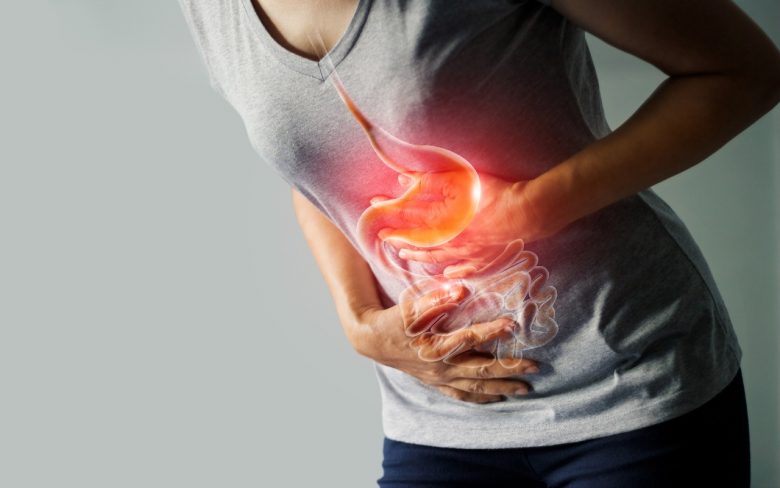Gastritis is a common digestive condition that can affect people of all ages. It occurs when the stomach lining becomes inflamed due to various factors such as bacterial infections, excessive alcohol consumption, stress, or long-term use of certain medications. If left unchecked, gastritis can lead to complications, making early detection crucial.
The Symptoms
But can gastritis cause diarrhea? While it primarily affects the stomach, some individuals may experience digestive disturbances, including diarrhea, as a symptom. The other symptoms are:
Persistent Stomach Pain
One of the earliest signs of gastritis is persistent stomach pain or discomfort. This pain is usually located in the upper abdomen and may worsen after eating. The intensity can range from mild to severe, often described as a burning or gnawing sensation.
Nausea and Vomiting
Individuals with gastritis frequently experience nausea, which can sometimes lead to vomiting. This symptom may be accompanied by a general feeling of unease in the stomach, making it difficult to eat or drink normally.
Loss of Appetite
A reduced desire to eat is another warning sign. Since gastritis irritates the stomach lining, eating may become uncomfortable, leading to a loss of appetite over time.
Bloating and Fullness
Feeling excessively full even after eating small meals is common in gastritis patients. Bloating and increased gas production may also accompany this symptom, making digestion uncomfortable.
Indigestion and Heartburn
Gastritis can disrupt normal digestion, leading to symptoms of indigestion, such as heartburn or acid reflux. A burning sensation in the chest or throat after eating could indicate underlying gastric inflammation.
Unexplained Weight Loss
Significant weight loss without any apparent reason can be a red flag for gastritis. When persistent nausea, vomiting, and loss of appetite interfere with normal food intake, unintentional weight loss may occur.
Changes in Bowel Habits
Does gastritis cause diarrhea? While it is not a primary symptom, some individuals may experience diarrhea as a part of their condition. Changes in stool consistency, such as loose or watery stools, could indicate gastrointestinal distress caused by gastritis.
When to Seek Medical Help
If you experience any of the above symptoms for an extended period, it is advisable to consult a healthcare professional. Gastritis can worsen if left untreated, potentially leading to ulcers or more severe digestive issues. Seeking guidance from experts at the best multispeciality hospital ensures that you receive a comprehensive evaluation and appropriate treatment.
Understanding the Connection Between Gastritis and Diarrhea
Gastritis can lead to digestive disturbances, affecting bowel movements in certain cases. The keyword “gastritis causes diarrhea” may not be commonly associated with this condition, but some individuals do report loose stools along with other symptoms.
This could be due to irritation in the gastrointestinal tract, dietary factors, or an underlying infection contributing to inflammation.
Risk Factors for Gastritis
Some of the factors that increase the risk of gastritis are:
- Helicobacter pylori (H. pylori) infection
- Frequent use of NSAIDs (nonsteroidal anti-inflammatory drugs)
- Excessive alcohol consumption
- High-stress levels
- Autoimmune diseases affecting the stomach lining
- Chronic bile reflux
Identifying these risk factors can help individuals take preventive measures to protect their digestive health.
How Is Gastritis Diagnosed?
A medical professional may use the following diagnostic methods to confirm gastritis:
- Physical examination and medical history
- Blood tests to check for infections or anemia
- Stool tests to detect H. pylori infection
- Endoscopy to examine the stomach lining
- Biopsy in case of severe symptoms or suspected complications
Managing Gastritis Symptoms
Determining the underlying cause can help treat gastritis. Some general management strategies include:
- Dietary modifications: Avoiding spicy, acidic, and fried foods can help reduce irritation.
- Medication: Antacids, proton pump inhibitors (PPIs), and H2 blockers may be prescribed to lower stomach acid production.
- Lifestyle changes: Reducing stress, quitting smoking, and limiting alcohol intake can significantly improve symptoms.
- Treating infections: If H. pylori is detected, a combination of antibiotics and acid-reducing medications may be necessary.
The Role of a Balanced Diet in Gastritis Management
A healthy diet plays a vital role in managing gastritis symptoms effectively. Consuming foods rich in fiber, lean proteins, and probiotics can support gut health. Avoiding processed foods, caffeine, and excessive dairy intake can prevent further irritation.
Can Gastritis Symptoms Include Diarrhea?
Many people wonder whether “gastritis symptoms diarrhea” is a recognized connection. While not everyone with gastritis experiences diarrhea, certain cases do involve changes in bowel habits. If you notice persistent diarrhea along with other gastritis symptoms, it is best to seek medical advice for proper assessment.
Conclusion
Early recognition of gastritis symptoms can prevent complications and promote better digestive health. If you experience ongoing stomach discomfort, nausea, or changes in bowel movements, consulting a specialist at a reputed medical facility is essential.
Timely intervention can help manage symptoms and improve overall well-being. If you suspect gastritis, don’t ignore the warning signs—get a professional evaluation today!
You may also like
-
Scalp Micropigmentation: Transforming Lives One Hairline at a Time
-
A Beginner’s Guide to Acupuncture: Tools, Techniques and Safety Tips
-
The Emotional Impact of a Mommy Makeover: Rediscovering Confidence Inside and Out
-
How to Read a Peptide Certificate of Analysis (CoA) for Research
-
Refresh Your Face with Juvederm

